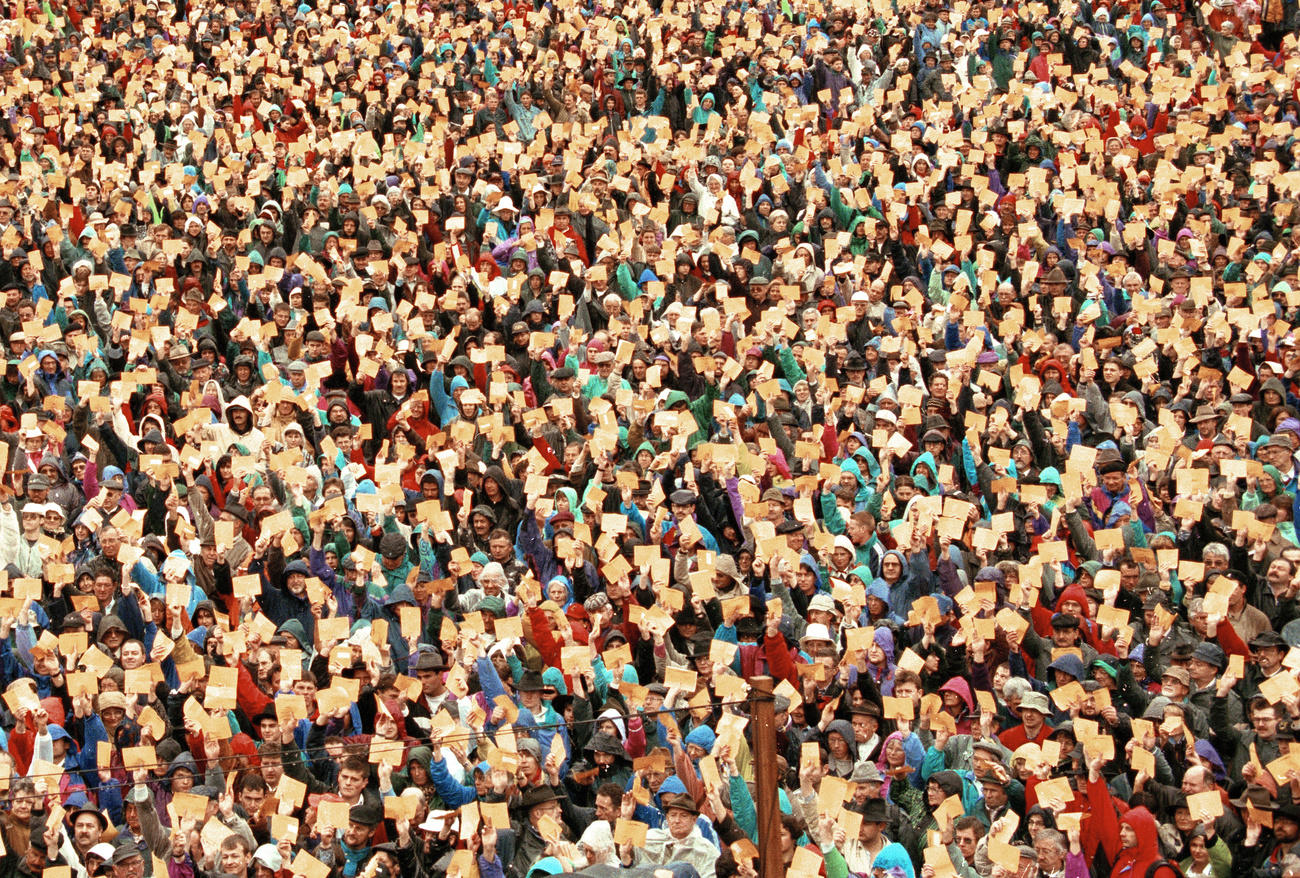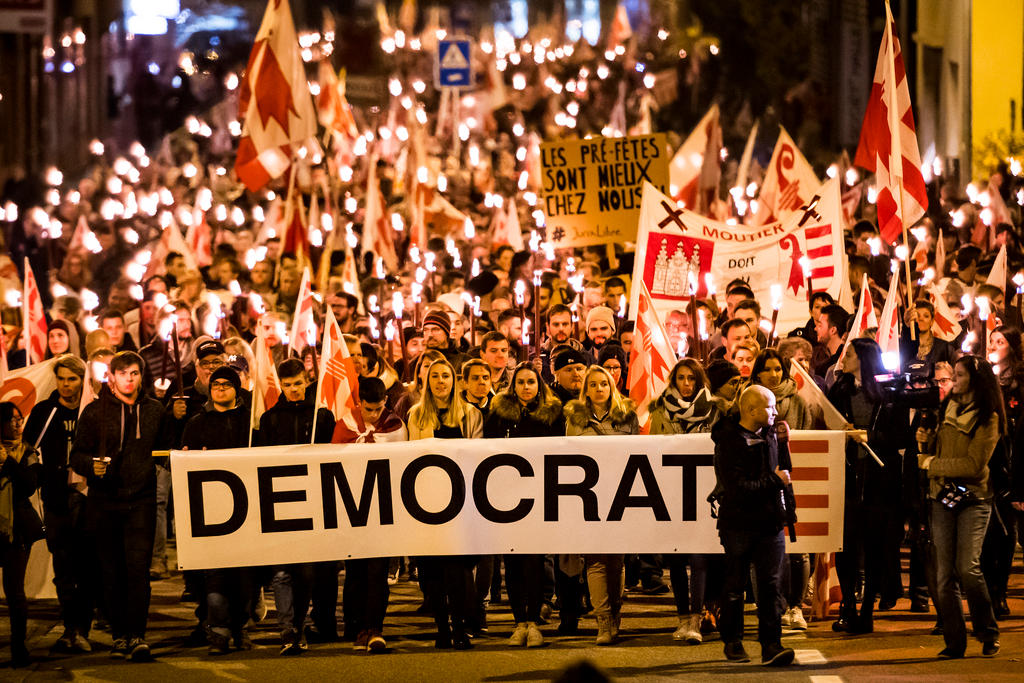‘People are more convinced than ever by democratic ideals’

Democracy is in crisis, we often hear – including in the West. Is it? Political scientist Hans Vorländer says that people are keener than ever on democratic ideals, even if globalisation and social media pose challenges.
To mark the International Day of Democracy, today September 15, here’s an excerpt from an interview the German researcher gave to Swiss public radio, SRF.
SRF: Which is the best democracy in the world?
Hans Vorländer: The best democracy is a representative, liberal democratic model, like those that have been developed over centuries in Europe and North America. These models have enabled the reconciliation of two things: self-determination and the protection of fundamental and human rights.
SRF: Norway occupies the top spot in the democracy ranking of the Freedom House NGO and the Economist magazine. Does that make sense for you?
H.V.: Yes, though I wouldn’t be able to pick out the differences between the countries in the top spots. You always need to see things in context: Norway is a relatively homogenous country that is economically strong thanks to fossil fuel resources and which is somewhat removed from major geopolitical fault-lines. The preconditions there are practically optimal.
Hans Vorländer: Professor of political theory at the technical university of Dresden, where he is also director of the centre for constitutional and democracy research.
SRF: Is wealth a decisive factor for democracy?
H.V.: Wealth alone is not enough, but it makes things easier. We know from studies that a strong middle-class and overall prosperity leads to stable democracy. On the other hand, when wealth is unequally distributed, this can lead to conflict within society.
SRF: In its annual report, Freedom House finds that democratic values are consistently weakening in almost all countries and that globalisation is responsible. Is this the case?
H.V.: Globalisation has various effects. It leads to the development of international structures, which means that problems and decisions are outsourced. Citizens no longer see where decisions are made and, as a result, whom they need to hold accountable.
With globalisation there is higher cross-border exchanges of goods, services and people – this changes the situation for nationally-run democracies. It also leads to more migration, especially in Europe, with its freedom of movement and of freedom of residency.

More
One-third of the world living in ‘autocratising’ countries
SRF: Has social media damaged democracy?
H.V.: Unfortunately, social media, like most things, is very ambivalent.
On one hand, it’s a way for groups to mobilise and foment opposition. Above all, this is important in semi-democratic or semi-authoritarian regimes, where social media is a means of advancing democratisation processes.
On the other hand, how we form opinions has been drastically changed due to social media. The public sphere has become more and more fragmented, and through social media we see more and more emotional outbursts and trends that now and then turn violently anti-democratic. This is a concern, because it leaves democracy in a very unstable, volatile and mood-dependent situation.
SRF: In many places, voices calling for “strongmen” leaders are growing. Is democracy losing support in the West?
H.V.: It’s easy to feel that it is.
That being said, people are more convinced than ever by the idea of democracy. Rather, they increasingly have doubts about the efficiency of the system. There is a discrepancy between the high expectations we have for democracy and the daily experience that democracy is slow and unable to deal with all the perceived threats that we’re facing.
Indeed, the current to-do list of problems is big; but this is not only down just to democracy, but also to the changes that are currently affecting democracy and that are leading to a completely different system of public opinion-forming.
The advantage of direct democracy as it has long been practiced Switzerland is that citizens do not give up responsibility for their own political priorities – as is the case in the more predominant representative democracies. In these, a distance can build up between politics and people, which can then cause citizens to turn against the so-called establishment, something from which right-populist currents hugely benefit.
In Switzerland, democracy remains directly grounded in citizens – an enormous advantage, as well as a guarantee of stability. But the model is not exportable to other countries; it requires various political and cultural conditions, as well as long history of practice. And though we shouldn’t ignore the inherent structural conservatism of a consensus-based model such as the Swiss, in a crisis situation, such as we see in many democracies right now, the resilience of such a model is greater.

In compliance with the JTI standards
More: SWI swissinfo.ch certified by the Journalism Trust Initiative


You can find an overview of ongoing debates with our journalists here. Please join us!
If you want to start a conversation about a topic raised in this article or want to report factual errors, email us at english@swissinfo.ch.